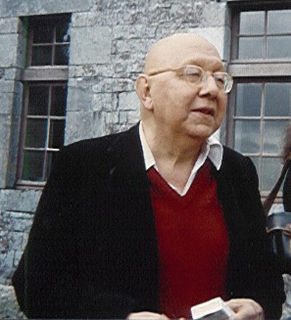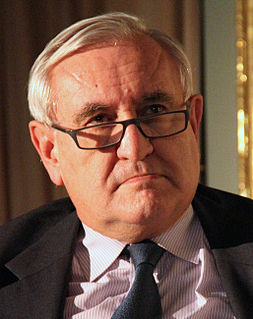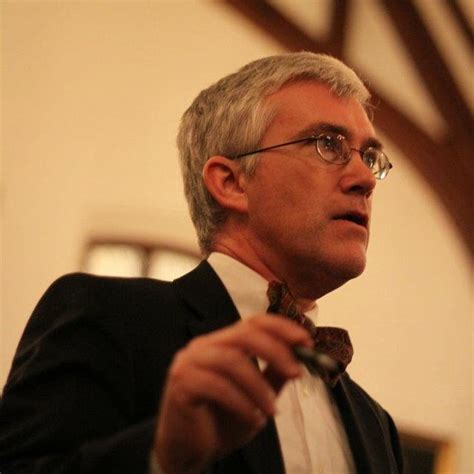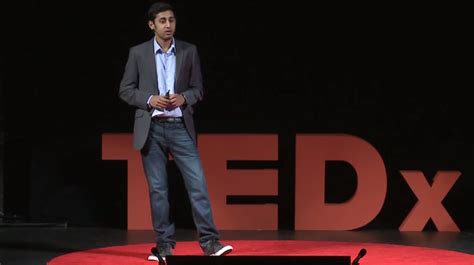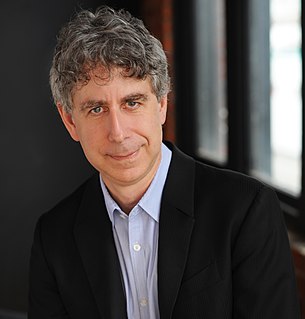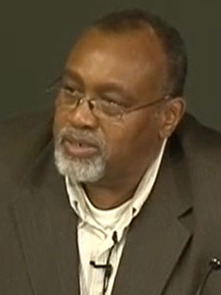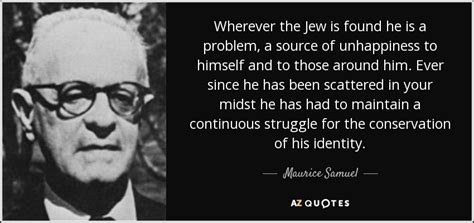Top 1200 Social Institutions Quotes & Sayings - Page 4
Explore popular Social Institutions quotes.
Last updated on December 11, 2024.
Markets are a social construction, they're made from institutions. We in a democratic society create markets, we constitute markets, we bring them into existence, and we shouldn't turn markets over to a narrow group of people who regulate them and run them in their interests, rather they should be run democratically for the common good.
Certainly, by providing individuals coming out of institutions with ways to become productive citizens, we reduce recidivism. What that means is we reduce crime. There are fewer victims when individuals have options - when they have job skills, when they have life skills, we break the cycle of children following their parents into institutions.
While all societies make their own imaginaries (institutions, laws, traditions, beliefs and behaviors), autonomous societies are those that their members are aware of this fact, and explicitly self-institute (????-?????????). In contrast, the members of heteronomous societies attribute their imaginaries to some extra-social authority (i.e. God, ancestors, historical necessity)
The institutions that claim to represent God, when they are not ignored altogether, are treated like other human institutions that have to earn their right to a hearing by the value of what they say, and not by virtue of who is saying it. Today, authority has to earn respect by the intrinsic value of what it says, not by the force of its imposition.
We have throughout our history been tested when it comes to the institutions of our democracy. And thank God our forefathers were smart enough to establish a government of checks and balances to make sure that power cannot be centralized in any one branch of government. And those institutions have proven themselves.
Becoming more flexible, open-minded, having a capacity to deal with change is a good thing. But it is far from the whole story. Grandparents, in the absence of the social institutions that once demanded civilized behavior, have their work cut out for them. Our grandchildren are hungry for our love and approval, but also for standards being set.
When a republic's most venerable institutions no longer operate as they were intended, it becomes possible for small cabals to usurp power, and, while keeping the forms, corrupt the function of those institutions for their own ends. Looking at things that way, the George W. Bush presidency has been both result and symptom of the decadence of America's constitutional mechanisms.
Creativity can replace conformity as the primary mode of social being. . . . We can cling to that which is passing, or has already passed, or we can remain accessible to-even surrender to-the creative process, without insisting that we know in advance the ultimate outcome for us, our institutions, or our planet. To accept this challenge is to cherish freedom, to embrace life, and to find meaning.
What we are seeing in cities such as Chicago, Athens and other dead zones of capitalism throughout the world is the beginning of a long struggle for the institutions, values and infrastructures that make critical education and community the center of a robust, radical democracy. This is a challenge for young people and all those invested in the promise of a democracy that extends not only the meaning of politics, but also a commitment to economic justice and democratic social change.
To create a world in which life can flourish and prosper we must replace the values and institutions of capitalism with values and institutions that honor life, serve life's needs, and restore money to its proper role as servant. I believe we are in fact being called to take a step to a new level of species consciousness and function.
Thus, the capital owner is not a parasite or a rentier but a worker - a capital worker. A distinction between labor work and capital work suggests the lines along which we could develop economic institutions capable of dealing with increasingly capital-intensive production, as our present institutions cannot.
On the surface the avant garde as a whole seems united primarily in terms of what they are against: the rejection of social institutions and established artistic conventions, or antagonism towards the public (as representative of the existing order). By contrast any positive programme tends to be claimed as exclusive property by isolated and even mutually antagonistic sub-groups. So modern art appears fragmented and sectarian, defined as much by manifestos as imaginative work.
As a Londoner who delights in the capital's dynamism and diversity, I none the less agree with Ken Livingstone that London hosts too great a share of our national institutions. Where sensible, more should be located in other cities, particularly new or reformed institutions that involve new facilities.
I am far more concerned about policies of the Democratic administration and Democratic Party that infringe on the rights of religious institutions and practices and open the door for using taxpayer dollars for abortions, to which many Americans have profound moral objections. Those are steps that would show a lack of respect for Catholics and their institutions.
We can't have extraordinary dynamism, innovation, and change in the economy and expect to have predictability and stability in our personal lives. It's not as if there are these big, giant institutions existing between us and the economy. In fact, these institutions have become tissue-thin. There is no mediation anymore. We are the economy; the economy is us.
The impulses of my heart are the voice of Nature, which is never mistaken. The institutions that stand in my way are man-made and are only arbitrary conventions to which I have never given my consent. In trampling these institutions underfoot, I shall have the double pleasure of satisfying my inclinations and of believing myself a hero
There could be an independent labor-based party, which might over time become an important force the way the Labor Party did in England. To all of these things there are plenty of barriers, in the culture and in the social and political institutions, the concentration of economic power. But these are not insuperable barriers, I think. They can be overcome. And it is urgent that this be done, because there are really incredible problems that are simply not being addressed.
As the corporation's size and power grew, so did the need to assuage people's fears of it. The corporation suffered its first full-blown legitimacy crisis in the wake of the early-twentieth-century merger movement, when, for the first time, many Americans realized that corporations, now turned behemoths, threatened to overwhelm their social institutions and governments.
I suppose it's not a social norm, and not a manly thing to do - to feel, discuss feelings. So that's what I'm giving the finger to. Social norms and stuff...what good are social norms, really? I think all they do is project a limited and harmful image of people. It thus impedes a broader social acceptance of what someone, or a group of people, might actually be like.
As the dominant social ethic changed from a religious to a secular one, the problem of heresy disappeared, and the problem of madness arose and became of great social significance. In the next chapter I shall examine the creation of social deviants, and shall show that as formerly priests had manufactured heretics, so physicians, as the new guardians of social conduct and morality, began to manufacture madmen.
I always feel we have to work both outside and inside of our existing institutions, so we have to really be careful about who we vote for and examine carefully our institutions and what they're meant to do and how they're being violated. I also think we need movements from below that oppose what Trump administration and administrations like it are doing to ordinary people.
Many institutions of higher learning will grant an 18- to 30-month deferral to prospective missionaries. This will enable you elders and sisters to serve without worrying about where you will begin your advanced education. We are very grateful to leaders of educational institutions who are making such planning possible!
Talk of imminent threat to our national security through the application of external force is pure nonsense. Our threat is from the insidious forces working from within which have already so drastically altered the character of our free institutions - those institutions we proudly called the American way of life.
There are many female gods recognized and honored by the tribes and Nations. Femaleness was highly valued, both respected and feared, and all social institutions reflected this attitude. Even modern sayings, such as the Cheyenne statement that a people is not conquered until the hearts of the women are on the ground, express the Indians understanding that without the power of woman the people will not live, but with it, they will endure and prosper.
My sermon for us Americans would be to construct the kind of institutions of mutuality and social cooperation that don't leave 15 or 20 percent of our people falling through the cracks. We can do it. It's not like we don't know what to do. It's not like there aren't models there. It's not like this isn't being done elsewhere. It's not like we can't afford to do it. It's a question of political will and it's about our definition as a people.
To restore confidence in our markets and our financial institutions so they can fuel continued growth and prosperity, we must address the underlying problem. The federal government must implement a program to remove these illiquid assets that are weighing down our financial institutions and threatening our economy.
What type of new economical system can organize this system? There is another sector in our life, that we rely on every single day, that are absolutely essential: the social commons, the social economy. It is all the activity we engage in to create social capital. It doesn't create capital market. Social commons is growing faster than the market place. It is growing faster than the market place. The social commons include any activity that is deeply social and collaborative.
Everyone recognizes a distinction between knowledge and wisdom. . . Wisdom is a kind of knowledge. It is knowledge of the nature, career, and consequences of human values. Since these cannot be separated from the human organism and the social scene, the moral ways of man cannot be understood without knowledge of the ways of things and institutions.
The Fascist State lays claim to rule in the economic field no less than in others; it makes its action felt throughout the length and breadth of the country by means of its corporate, social, and educational institutions, and all the political, economic, and spiritual forces of the nation, organised in their respective associations, circulate within the State.
Some of the power has shifted from companies to people. Using social media tools (blogs, wikis, tagging, etc.) more individuals are creating semi-spontaneous 'groundswells' of opinions to which companies and other institutions are realizing they must respond. From marketing to consumers organizations are being pulled into engaging with individuals.
We as a nation need to be reeducated about the necessary and sufficient conditions for making human beings human. We need to be reeducated not as parents--but as workers, neighbors, and friends; and as members of the organizations, committees, boards--and, especially, the informal networks that control our social institutions and thereby determine the conditions of life for our families and their children.
It is no limitation upon property rights or freedom of contract to require that when men receive from government the privilege of doing business under corporate form... they shall do so under absolutely truthful representations... Great corporations exist only because they were created and safeguarded by our institutions; and it is therefore our right and duty to see that they work in harmony with these institutions.
The only standard we have for judging all of our social, economic, and political institutions and arrangements as just or unjust, as good or bad, as better or worse, derives from our conception of the good life for man on earth, and from our conviction that, given certain external conditions, it is possible for men to make good lives for themselves by their own efforts.
Since the early days, [the church] has thrown itself violently against every effort to liberate the body and mind of man. It has been, at all times and everywhere, the habitual and incorrigible defender of bad governments, bad laws, bad social theories, bad institutions. It was, for centuries, an apologist for slavery, as it was an apologist for the divine right of kings.
My Third-World roots remind me that the vast majority of our fellow human beings live hungry, sick, and uneducated, and that most social scientists, even in that world, ignore that ugly reality. This is why my papers in mathematical sociology deal not with free choice among 30 flavors of ice-cream, but with social structure, social cohesion, and social marginality.
It happens from time to time in every complex and active society, that certain persons feel the complexity and insistence as a tangle, and seek freedom in retirement, as Thoreau sought at Walden Pond. They do not, however, in this manner escape from the social institutions of their time, nor do they really mean to do so; what they gain, if they are successful, is a saner relation to them.
My conception of freedom. — The value of a thing sometimes does not lie in that which one attains by it, but in what one pays for it — what it costs us. Liberal institutions cease to be liberal as soon as they are attained: later on, there are no worse and no more thorough injurers of freedom than liberal institutions.
Anthropologists have often described what happens to a primitive society when its spiritual values are exposed to the impact of modern civilisation. Its people lose the meaning of their lives, their social organisation disintegrates, and they themselves morally decay. We are now in the same condition. But we have never really understood what we have lost, for our spiritual leaders unfortunately were more interested in protecting their institutions than in understanding the mystery that symbols present.
There will be no room, here, for the smug myopia which views American civilization as the final solution to all world problems; which recommends our institutions for universal adoption and turns away with contempt from the serious study of the institutions of peoples whose civilizations may seem to us to be materially less advanced.
We Jews are accused of being destroyers: whatever you put up, we tear down. It is true only in a relative sense. We are not iconoclasts deliberately: we are not enemies of your institutions simply because of the dislike between us. We are a homeless mass seeking satisfaction for our constructive instincts. And in your institutions we cannot find satisfaction.




